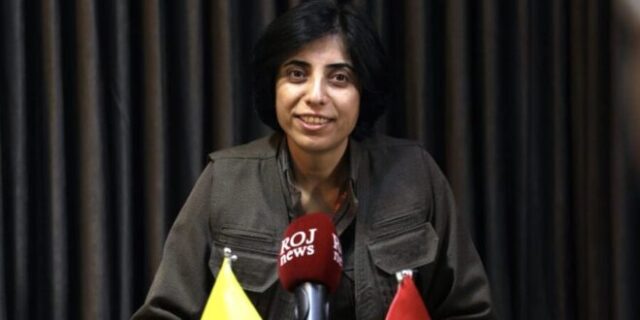
Brief: Iranian Branch of PKK Faces Uncertain Future Amid Regime Crackdown
Publication: Terrorism Monitor Volume: 23 Issue: 3
By:

Executive Summary:
- The Islamic Republic of Iran is cracking down on the Kurdistan Free Life Party (PJAK) in the aftermath of its war with Israel. The PJAK appears to be reaching out to potential allies in the West, and has likewise tried to build a united front against the regime with other minorities in the country.
- Türkiye would have the easiest time supporting the PJAK if it so chose, but is ideologically opposed to the group and considers meaningful instability in Iran a potential threat to its own national security.
The Kurdistan Free Life Party (PJAK), the Iranian wing of the Kurdistan Workers’ Party (PKK), is facing severe crackdowns by the Islamic Republic following the apparent conclusion of the June 2025 Israel–Iran War. Over 300 individuals have been detained, with 20 sentenced to death on charges of treason and “collaboration with Israel.”
The PJAK made calls on the second day of the war to rally Iranian citizens against the regime, citing its oppression of Kurds and other minorities. The June 24 ceasefire, which left the Islamic Republic in power (albeit with an uncertain future), seems to have dashed those hopes. Nonetheless, Supreme Leader Ali Khamenei’s regime remains concerned that the PJAK could be at the forefront of a “possible uprising in the Kurdish regions.” These fears are based on the notion that the group aims at creating a sovereign Iranian Kurdistan, making the existing Iranian government’s grip on power even more tenuous (Aydinlik, July 3).
The PJAK promotes a secular mode of governance along the lines of the Rojava, the semi-autonomous Kurdish region of northern Syria. In particular, this includes the promotion of women’s rights in addition to calling for Iran to embrace “democratic federalism” on the model espoused by PKK leader Abdullah Öcalan (Medya News, June 26). In what is likely an attempt to advertise itself to Israel or the West as an ally—and thus clearly a threat to the Islamic Republic—a PJAK co-chair recently declared that the regime has two “weak points”: women and Kurds (Kurdistan Latin America, June 25).
The PJAK sees Türkiye as an ideological threat, while Türkiye claims that fomenting unrest in Iran is against its own interests. The PJAK is wary of Ankara not only for its counter-terrorism efforts and recent reconciliation with the PKK, but also for its alleged spreading of “Pan-Turkism” in northwestern Iran, which the PJAK claims is generating conflict between the Turkic Azerbaijani population and the region’s Kurds (Kurdistan Latin America, June 25). Türkiye, citing fears of a humanitarian crisis and expected subsequent outflow of migration, is against any “weakening or fragmenting” of Iran. In particular, Ankara fears such a development would allow the PJAK to incite “unrest” and become more active in the Turkish–Iranian border regions, thus jeopardizing the stability of its own Kurdish-majority regions (Daily Sabah, June 22).
The PJAK is not framing its resistance as seeking autonomy solely for Iran’s Kurds, but also for all ethnic minorities in the Persian-centric country. In an attempt to create a united front, the PJAK has called on “all Azerbaijani organizations seeking freedom and democracy to strengthen the spirit of democratic convergence between the Kurdish and Azerbaijani peoples” (Ajansa Nûçeyan a Firatê, June 23). Similarly, fighters from another Kurdish militant group, the Kurdistan Freedom Party (PAK), appeared in a video alongside both Azeri and Baloch militants, presenting their mutual struggle against the Islamic regime as unified. In the video, a figure claims that if the three groups join forces, they are capable of bringing autonomy to all of Iran’s ethnic minorities (X/@vvanwilgenburg, June 21).
The Islamic Republic’s tentative grasp on power will make it difficult for PJAK and other ethno-nationalist militant groups to achieve their aims for autonomy or independence. However, they will also remain pressure points on the regime and could eventually support—and be supported by—the regime’s nemeses, including Israel, the United States, and other regional powers opposed to Tehran.



